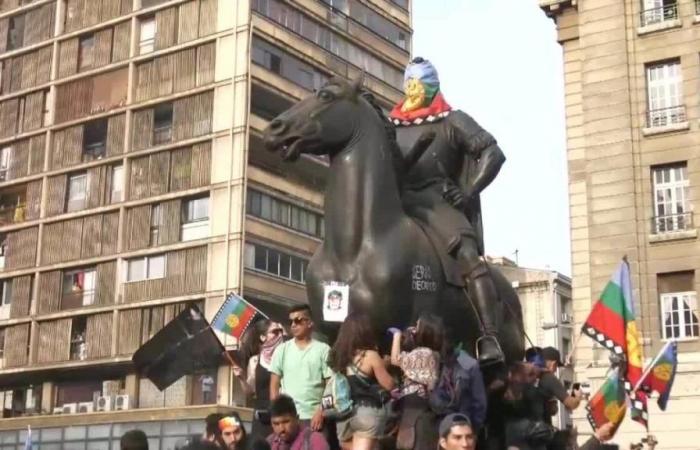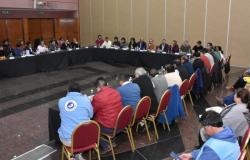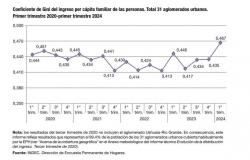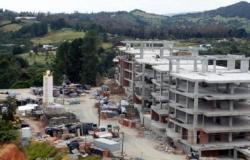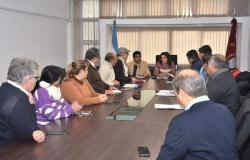Santiago de Chile June 20 (EFE).- The indigenous peoples of Chile celebrate this Thursday the National Day of Indigenous Peoples, one more year as the only country in Latin America that does not recognize them in its Constitution, and with little hope that this situation will change in the near future.
“We know that we are a minority, 13% of the population according to the last census, and as a minority we have certain demands that are legitimate and that we would like to be processed democratically, and that is what today is the duty of the political system and democratic of our country,” the Chilean lawyer and academic, Alihuen Antileo, told EFE.
For Antileo, a member of the indigenous Mapuche community, the quality of democracy in modern systems can be measured in two functions: “In how they address, first, the legitimate cultural and political differences that exist in a country and, second, in how they are They address those differences with sectors that are minorities.”
Within the South American country there are at least ten indigenous communities, the Mapuche being the largest with almost 1,800,000 people, and the most persecuted for defending their lands.
“Now we can show ourselves and they are not going to kill us, although some of our companions are killed in certain places for defending their territory,” Sandra Durán, from Atacama, who calls the members of other Andean communities “brothers,” explained to EFE.
According to data from the International Working Group on Indigenous Affairs (IWGIA), a global human rights organization, in the 2017 census, 12.8% of the population identified as indigenous.
Likewise, 87.8% of this Chilean population lives in urban areas, according to the census, as is the case of Durán, where they feel that they are “in another dimension” due to the school content, which “goes against the environment.” .
“The Constitution should recognize all natural elements as subjects of law, because they are part of life. Without the components of nature, we do not exist,” denounced Durán.
Defense and link with nature
Juan Huarancca, Quechua indigenous and teacher of the ‘runa simi’ language, explained to EFE the most relevant value for him of the indigenous peoples: “Sensitivity with others, with understanding nature, the land and sensitivity with animals.”
The ‘Indigenous Law’ in Chile has not been modified, despite the urgent need to adapt it to international standards, according to the IWGIA.
Furthermore, the human rights organization indicates that after the electorate’s rejection of a new constitutional text in the September 2022 plebiscite, the political parties in Congress seek to promote a new constituent process through the ‘Agreement for Chile’.
The constitutional recognition of the indigenous population, according to Alihuen Antileo, would mean “winning the right to land and territory, an eminently collective right,” since indigenous property is not private, as is generally the case in the West, but is “seeks to privilege the protection of community assets.”
Regarding educational and linguistic rights, Antileo trusts that through the reform of the ‘Indigenous Law’ the most conservative sectors will be willing to dialogue and advance in this, also placing emphasis on the right to differentiated political participation, with the possibility of having reserved seats in the House or Senate.
A possibility that, in view of the currents that mark Chilean politics, seems very difficult, after a first constituent process in which the indigenous question was instrumentalized in a bitter political debate that ended with the victory of a text that recognized the majority of the aspirations of the only indigenous peoples not constitutionally recognized in Latin America.
(c) EFE Agency

